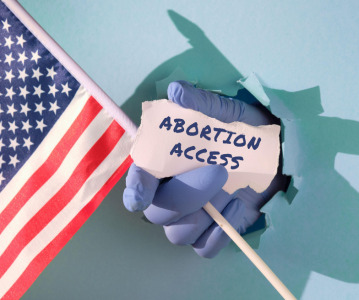Big Pharma Fights Drug Rulings In India
Landmark drug patent protection cases involving Bayer, Roche, and Novartis are advancing in India this month. Together, they will help determine how friendly the country is to Western pharmaceutical makers.
Landmark drug patent protection cases involving Bayer, Roche, and Novartis are advancing in India this month. Together, they will help determine how friendly the country is to Western pharmaceutical makers.
On Sept. 3, Bayer filed an appeal with the Intellectual Property Appellate Board in Chennai over a compulsory license order entitling the Indian firm Natco Pharma to produce a generic version of the Bayer kidney and liver cancer drug Nexavar. Issued in the spring, the license let Natco onto the market by paying Bayer a modest 6% royalty on sales of the generic drug. The order marks the first time that a foreign branded drug has been subject to compulsory licensing in India.
On Sept. 7, Roche lost a case in the High Court of Delhi, where it had argued that the Indian drug producer Cipla was infringing on its patents by selling a generic version of the lung cancer drug Tarceva. In a 275-page ruling, the court sided with Cipla’s contention that Tarceva is based on a different polymorph of the active ingredient erlotinib than the one Roche patented in India. Roche had attempted to patent the different polymorph, but India rejected it as too similar to the patented one.
“We are strongly considering an appeal,” Roche says. “Many of the cheap generic drugs today used in India were once patent-protected and are only available to society because companies such as Roche were willing to take a risk by investing in new innovative drugs.”
Meanwhile, on Sept. 11, Novartis began contesting in India’s Supreme Court key features of the pharmaceutical patent regime that the country instituted in 2005. The Novartis challenge follows India’s repeated refusal to grant patent protection to the cancer drug Gleevec on the grounds that it is nothing more than a new crystal form of an older compound. Gleevec enjoys patent protection in most major markets around the world.
“Novartis challenged the decision not to grant a patent to our life-saving medicine Gleevec because we strongly believe safeguarding incentives for innovation through the granting of patents leads to better medicines for patients,” the company says.
Although each case involves its own complex scientific and legal circumstances, drugmakers and patient activists are watching the disputes for the tone they collectively will set about intellectual property protection in India. Some observers see India as a model for the developing world.
Legal and medical scholars Peter Roderick and Allyson M. Pollock, at Queen Mary, University of London, argue that India’s system of intellectual property protection “should help rather than hinder” access to drugs in India. “The Bayer and Novartis cases are seeking to undermine public health considerations aimed at improving access and therapeutic advantage,” they write
By Jean-Fran?ois Tremblay
Related News
-
News Updated – Changing abortion pill access according to the US FDA and Supreme Court
After the approval of the medical abortion pill, mifepristone, by the US FDA, states across the USA approach the distribution of the pill differently, some ruling against allowing access to the drug. -
News CPHI North America 2024 – From the Floor
Welcome to Philly! CPHI North America once again graces the Philadelphia Convention Center, 7–9 May 2024. -
News Drug Patent Expiries: a steep cliff or opportunity for innovation?
The pharmaceutical industry faces a patent cliff together in the years leading up to 2030. Learn what this means for drug pricing, their outsourcing partners, and drug innovation of the future. -
News A Day in the Life of a President and Chief Scientific Officer
We are continuing to get to know the people working day-to-day behind the pharma companies shaping the industry, the ones who keep the wheels turning and ultimately bring better healthcare to the population; we are talking to the individuals at the hea... -
News Gerresheimer predicts weight-loss drug deals to account for 4% of yearly growth
Dietmar Siemssen, CEO of German primary packaging manufacturer Gerresheimer, states that approximately 4% of the company’s revenue growth each year to come from deals with drugmakers of weight loss and diabetes products, particularly GLP-1 class ... -
News LEAP-ing into the future of pharma – the CPHI Middle East Vision
On March 6, 2024, the CPHI team hosted the Future of Pharma Forum at LEAP 2024, Saudi Arabia’s premier destination for tech leaders and innovators to meet and collaborate. -
News Informa Markets International Women’s Day Panel Discussion
On March 7, 2024, the Informa Markets Amsterdam office hosted an International Women’s Day Breakfast and Panel Discussion to celebrate the women who drive the B2B events industry forward, including members of the CPHI team. -
News Generics threat to Merck’s Bridion as Hikma seeks pre-patent expiry approval
Merck has disclosed they received notice from Hikma Pharmaceuticals for seeking a pre-patent expiry US FDA approval for Hikma’s generic version of Merck’s Bridion.
Position your company at the heart of the global Pharma industry with a CPHI Online membership
-
Your products and solutions visible to thousands of visitors within the largest Pharma marketplace
-
Generate high-quality, engaged leads for your business, all year round
-
Promote your business as the industry’s thought-leader by hosting your reports, brochures and videos within your profile
-
Your company’s profile boosted at all participating CPHI events
-
An easy-to-use platform with a detailed dashboard showing your leads and performance


.png)

.png)

.png)
.png)